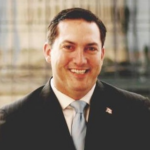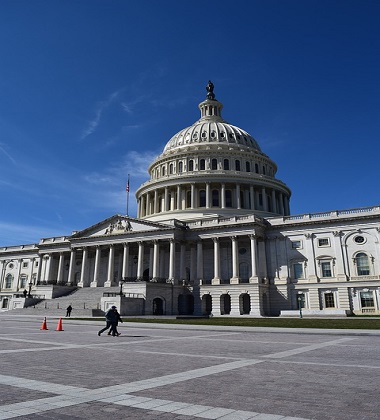The U.S. Supreme Court’s decision in South Dakota v. Wayfair is effectively a new tax that will enrich state governments at the expense of the public.
However, the responsibility for this new Wayfair Tax now rests with state lawmakers and members of Congress.
In Wayfair, the Court held a state can require an out-of-state seller with no physical presence in the state to collect and remit sales taxes on goods the seller ships to consumers in the state.
For more than 50 years, the states could collect sales taxes from out-of-state sellers only if the latter had a physical presence in the taxing state, under the 1967 decision in National Bellas Hess Inc. v. Department of Revenue of Illinois. That decision was affirmed in 1992 by the Court in Quill Corp. v. North Dakota.
As a consequence of the Wayfair decision, consumers will have to pay more for goods they purchase from out of state, including catalog and internet purchases. Although retailers will remit the tax, the burden of the new tax and compliance will be passed on to consumers. Many small and midsized businesses will be unable to bear this added burden.
Reliance on Court’s Precedents
Lawyers representing South Dakota and numerous other state governments participating in the case rightly pointed out the Bella Hess and Quill precedents were inconsistent with several other past Court decisions. Despite this, hundreds of major retailers have relied on the Bella Hess and Quill precedents in structuring their business models for over half a century.
Consequently, many small-to-midsized businesses will likely fail because of the decision’s added burden. Keep in mind, many of these out-of-state retailers are very small, such as jewelry retailers run by single mothers out of their apartments.
In the minority opinion, the dissenting judges correctly pointed out widespread “reliance” on a precedent is normally a factor heavily weighed by the Court before overruling a precedent. In fact, the dissenting opinion largely rests on the argument that the majority gave insufficient weight to a long-held, widely relied-upon, and firmly established precedent.
Windfall for States
The plaintiffs emphasized two other arguments in favor of the new tax. First, they argued the state needed the money, though not to offset any extraordinary costs associated with governing out-of-state business owners. Instead, South Dakota essentially said it needed this new taxation power to support its general-revenue fund.
That is probably because there is virtually no cost in governing out-of-state retailers and this revenue is little more than a windfall for the states. In fact, the Bellas Hess and Quill precedents were based on the premise that this taxation applied to remote entities whose only tie to the state was a common mail carrier.
The State also argued the status quo was unfair to its taxpaying in-state retailers. The first problem with this argument is that the power to achieve fairness lies with the state itself: it could reduce the tax for in-state retailers, and all would be fair with the world. But apparently, although the virtues of “fairness” call for extraordinary judicial action, they do not necessitate sacrifice on the part of the state—just the taxpayer. The second problem is that the state is well-justified in singling out in-state retailers for taxation. Those brick-and-mortar outlets place a cost on the state that out-of-state retailers do not.
Putting the Ball in Legislators’ Court
Perhaps the most objectionable dynamic in this decision is the Court’s short shrift to congressional responsibility.
It is Congress that has been vested with the power of taxation and regulation of interstate commerce. Congress has chosen not to change the Bellas Hess and Quill status quo, despite being urged to do so by the 50 states for decades. The Court is essentially functioning as an end-around Congress here because Congress has not acted.
Without congressional action, those paying the tax will rarely be able to vote for the politicians imposing the tax. This reduces electoral accountability and provides states with little incentive to moderate their tax burdens.
This is classic “taxation without representation.” Congress should avert the Wayfair tax by codifying the Bella Hess and Quill precedents.
Double-Edged Sword
State lawmakers are under no obligation to impose the new Wayfair tax and should be leery of doing so. Although it is certainly going to be tempting for them to reach for this potentially enormous windfall, they must consider the other edge of this sword. Besides the obvious problem—that this would be a new tax passed on to their citizenry—imposing the new Wayfair tax will invite more out-of-state players to enter a state’s politics.
We have already seen this in other contexts. In states across the country, Silicon Valley companies such as Amazon.com have been attempting to use their economic leverage to blackmail states into adopting policies that favor their financial and ideological interests. One can easily foresee a major online retailer gaining further economic leverage through this new tax by threatening to discontinue retail sales in states that refuse to kowtow to their demands.
Voters’ Turn
Voters should question their congressional and state legislative members about this issue at every turn. This tax will raise the price of goods purchased from out-of-state sellers. This tax will hit people and businesses of all types, income levels, and locations. Without appropriate legislative action, this may be one of the largest taxes increases in American history.





